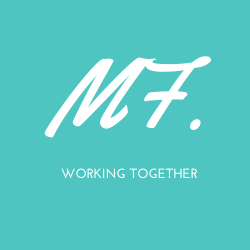🙋🏻♀️Time To Make A Change
Leadership, Freedom, and Humanity
When your world is upended, does anything make sense anymore? That’s a question I’ve been thinking about a lot lately. We are all trying to navigate a world that looks very different from eight months ago. We are all impatient to get back to "normal."
🌴I waved goodbye to Normal in December.
For me, Normal sailed away this past December when I decided to move 1,000 miles (ca. 1,609 km) to Florida to start a new job in a new industry. I made that decision when it looked like 2020 would bring nothing but exciting events: warm weather, new job, new house, new places to visit and travel.
And 2020 did bring some of those exciting events, but it also brought sadness. The sadness of moving away I expected, but seeing the devastating effects of this pandemic is gut-wrenching.
In addition to the pandemic, nightly, we continue to see demonstrations against police brutality and inequality. Many of these scenes are disturbing, but there are also signs of hope and solidarity. I hope and pray that we look back on 2020 as the year that saw the start of the dismantling of systemic racism.
What does any of this have to do with Human Resources?
🙋🏻♀️Should I just shut up and HR?
Nope. It’s not enough to act as if the external world ends when people walk through our company doors. How many of us continue to see, address, or hear about people dealing with these issues at our workplaces?
Sexual Harassment
Bias
Racism
Sexism
Bullying
And we continue to see so many of the same HR problems we’ve seen for decades:
Disengagement
Retention
Poor performance management processes
Lack of communication
✅Too often, the solution to these problems is a check-the-box exercise.
DEI is one of the more egregious examples of this. Many organizations profess to want a diverse workforce but lament the “lack of candidates.” All while continuing to use traditional recruiting practices and promotional guidelines that reinforce biased selection and performance evaluation.
And too often, workplace policies punish people who do not fit into the 8-5 mold:
Focusing on time in the office instead of work product
Rewarding “team players”
Blindly applying policies and rules without any thought to the context or the situation
🌍As our world has evolved, the traditional world of work with its traditional expectations persists in many organizations.
Demographically, the United States looks and will continue to look less and less white, so why do we still lack executive leadership that is reflective of our population?

All data is from the U.S Census via Wikipedia.
And how about lifestyle changes?
Today, 26% of children live in a single-parent home (22% in 2000 and just 9% in 1961). 70% of moms with children under the age of 18 are in the workforce, and 64% of moms with preschool-aged children work. Three-quarters of employed moms work full-time.
Many of the standard practices we find in our organizations today originate from a world that looked very different from the world we live in today;
🧗🏻How can we position ourselves, our teams, and our organizations for the future?
Leadership, Freedom, and Humanity
I believe, in the core of my being, that we can build better organizations. Modern, flexible organizations where people are treated like people and have the freedom to create, innovate, and come to work as the people they are.
I believe people and organizations can work together for mutual success. It doesn’t have to be us versus them.
How? I think it starts with three simple pillars:
Leadership: Without robust and courageous leadership, you can’t change existing systems or build new ones.
Freedom: Freedom to move away from traditional norms and expectations.
Humanity: As organizations, as leaders, as co-workers, we need to recognize the humanity in each other.
I want to build a community where we can figure out, together, how to make better organizations. We can only improve our world by listening and working together.


